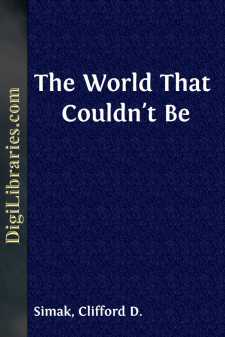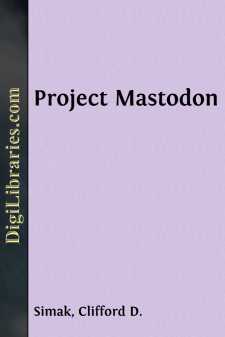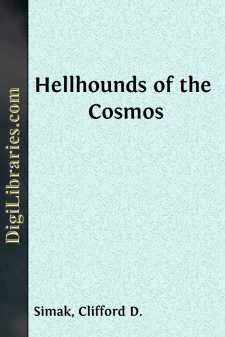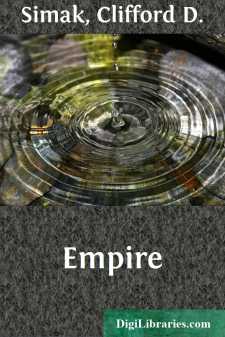Categories
- Antiques & Collectibles 13
- Architecture 36
- Art 48
- Bibles 22
- Biography & Autobiography 813
- Body, Mind & Spirit 141
- Business & Economics 28
- Children's Books 12
- Children's Fiction 9
- Computers 4
- Cooking 94
- Crafts & Hobbies 4
- Drama 346
- Education 46
- Family & Relationships 57
- Fiction 11826
- Games 19
- Gardening 17
- Health & Fitness 34
- History 1377
- House & Home 1
- Humor 147
- Juvenile Fiction 1873
- Juvenile Nonfiction 202
- Language Arts & Disciplines 88
- Law 16
- Literary Collections 686
- Literary Criticism 179
- Mathematics 13
- Medical 41
- Music 40
- Nature 179
- Non-Classifiable 1768
- Performing Arts 7
- Periodicals 1453
- Philosophy 64
- Photography 2
- Poetry 896
- Political Science 203
- Psychology 42
- Reference 154
- Religion 513
- Science 126
- Self-Help 83
- Social Science 81
- Sports & Recreation 34
- Study Aids 3
- Technology & Engineering 59
- Transportation 23
- Travel 463
- True Crime 29
Clifford D. Simak
Clifford D. Simak (1904–1988) was an American science fiction writer known for his pastoral, thoughtful style, often exploring themes of peace, nature, and humanity's place in the universe. He won multiple prestigious awards, including three Hugo Awards and a Nebula Award, and his most famous work is the novel "City" (1952), which imagines a future where humans have largely vanished, leaving robots and intelligent dogs to contemplate their legacy. Simak's stories often merge science fiction with a rural Midwestern sensibility, reflecting his upbringing in Wisconsin. Another notable work is "Way Station" (1963), which tells the story of a man running an intergalactic way station on Earth.
Author's Books:
Sort by:
he tracks went up one row and down another, and in those rows the vua plants had been sheared off an inch or two above the ground. The raider had been methodical; it had not wandered about haphazardly, but had done an efficient job of harvesting the first ten rows on the west side of the field. Then, having eaten its fill, it had angled off into the bush—and that had not been long ago, for the soil...
more...
The chief of protocol said, "Mr. Hudson of—ah—Mastodonia." The secretary of state held out his hand. "I'm glad to see you, Mr. Hudson. I understand you've been here several times." "That's right," said Hudson. "I had a hard time making your people believe I was in earnest." "And are you, Mr. Hudson?" "Believe me, sir, I would not try to...
more...
The paper had gone to press, graphically describing the latest of the many horrible events which had been enacted upon the Earth in the last six months. The headlines screamed that Six Corners, a little hamlet in Pennsylvania, had been wiped out by the Horror. Another front-page story told of a Terror in the Amazon Valley which had sent the natives down the river in babbling fear. Other stories told of...
more...
CHAPTER ONE Spencer Chambers frowned at the spacegram on the desk before him. John Moore Mallory. That was the man who had caused so much trouble in the Jovian elections. The troublemaker who had shouted for an investigation of Interplanetary Power. The man who had said that Spencer Chambers and Interplanetary Power were waging economic war against the people of the Solar System. Chambers smiled. With...
more...





